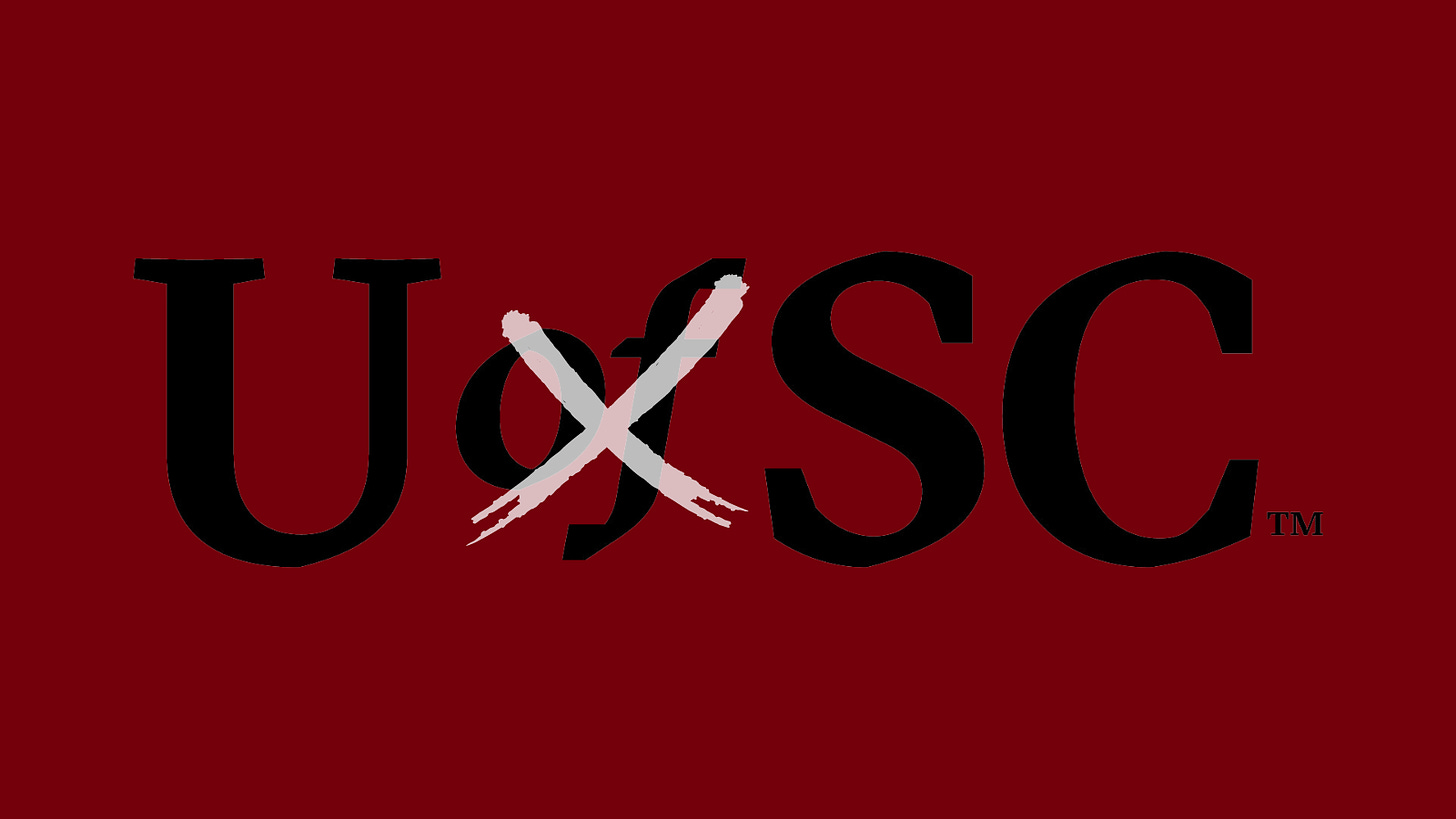Why 'U of SC' was doomed to fail
The abbreviation, formally introduced in 2019, may have advanced USC's global branding interests but it never caught on with the rank-and-file.
The University of South Carolina announced Wednesday that its short-lived “U of SC” branding is dead. Most fans and alumni I’ve talked to have greeted this as unambiguously good news. It usually goes like this: though they strongly disliked the U of SC abbreviation upon its formal introduction in 2019, in the three intervening years they’ve rarely had cause to think about it.
These accounts square with my own personal experience. I never referred to the school as U of SC. No one I know ever referred to the school as U of SC. Since 2019, only 824 news articles referred to the school as U of SC — which, in the grand scope of the internet, might as well be zero news articles. The only time I was reminded of the brand change was in official communications from the university. As far as I could tell, the school itself was the only one using “U of SC” in any consistent way.
To be fair to the university — and to the marketing firm they paid $283,000 for the 2019 brand refresh — getting existing fans to say “U of SC” was not necessarily the goal. The goal was to reach new and prospective students with a clear, differentiated brand that did not risk confusion with Southern California or North Carolina. The guidance to use “U of SC” was primarily intended for internal use.
Without access to internal metrics that might have guided the reversion to “USC,” I’ll lean on Google Search data as a measure of how unsuccessful the school was in persuading people to adopt this branding. Not only was there very little increase in searches for “U of SC” but users exhibited a continued preference for typing out “university of south carolina” over the abbreviated form.
Pitting “u of sc admissions” against “university of south carolina admissions” yields similar results.
Why didn’t U of SC catch on?
Demonstrating that it didn’t catch on is easier than demonstrating why it didn’t catch on, but I can offer some informed speculation.
While @UofSC is a perfectly defensible Twitter handle when @USC is already taken, U of SC is a pretty weird thing to say out loud. And unless you really go out of your way to put undue emphasis on the “of,” it tends to get swallowed by the U and the S anyway. In general, it seems there wasn’t enough consideration given to how this would play outside of a purely digital context.
U of SC isn’t an abbreviation anyone was already using. It would have been one thing if U of SC was just another variation of what South Carolina fans had always called their school and the administration was stepping in to throw its weight behind an existing faction. But that’s not what happened.
The introduction of “U of SC” didn’t resolve any brand confusion problems existing South Carolina fans or alumni were having.
I can understand the theory behind U of SC:
Calling ourselves USC is a problem because there’s another USC. Calling ourselves Carolina is a problem because there’s another Carolina. So let’s call ourselves something that does not invite the possibility of confusion with any other school.
But South Carolina fans had already figured out solutions to this problem on their own. Gamecock fans who care enough about the Gamecocks to look them up online are aware that there is another USC and another Carolina. Long before anyone dreamed up “U of SC,” every stakeholder in the world of Gamecock athletics — fans, students, alumni, journalists, etc. — had ascertained that “South Carolina” and “Gamecocks” are much more effective search terms than Carolina or USC.
But existing Gamecock fans were not the target audience South Carolina was hoping to capture with the move to U of SC. Within the state of South Carolina, it is immediately obvious that references to “Carolina” or “USC” are shorthand for “the University of South Carolina.” Distinguishing yourself from North Carolina and Southern California only becomes necessary when you stop speaking to a local audience and start speaking to a national one.
But going all-in on the national audience is like trying to win an election by appealing exclusively to undecided voters while being openly hostile to your base.
The U of SC debate is, to some degree, an argument about what we want the University of South Carolina to be.
Is it a school? Is it a physical location? Is it a research institution? Is it a workplace? Is it a home? Is it a sports team? Is it a shared experience that threads a community together?
Or is it a global brand? Like McDonald’s or Coca-Cola.
If managing the global brand is your only priority, then U of SC makes a great deal of sense. Having an internationally recognized university would be a good thing, and in the long run, a more clearly differentiated brand would help facilitate that objective; it’s harder to attract new students, after all, if you sometimes get confused with other schools.
But if raising the school’s brand profile requires forsaking the traditions on which the school was built — especially when the traditions in question are as elemental as “What is the school called?” — we should at least stop to ask if that’s a cost we’re willing to bear.
Keep reading with a 7-day free trial
Subscribe to To Thee, Forever Ago to keep reading this post and get 7 days of free access to the full post archives.




